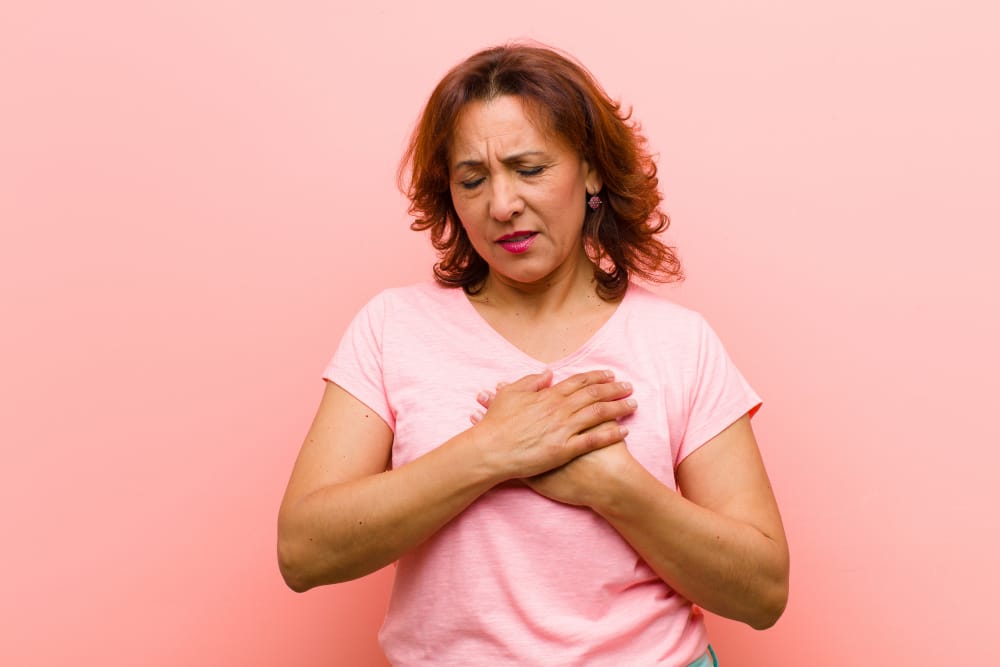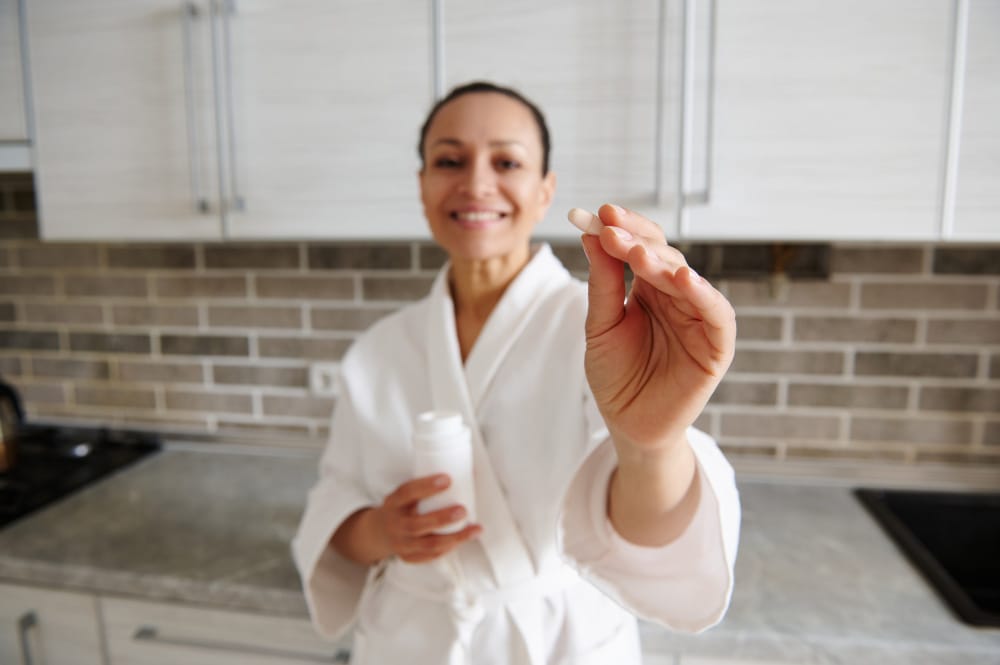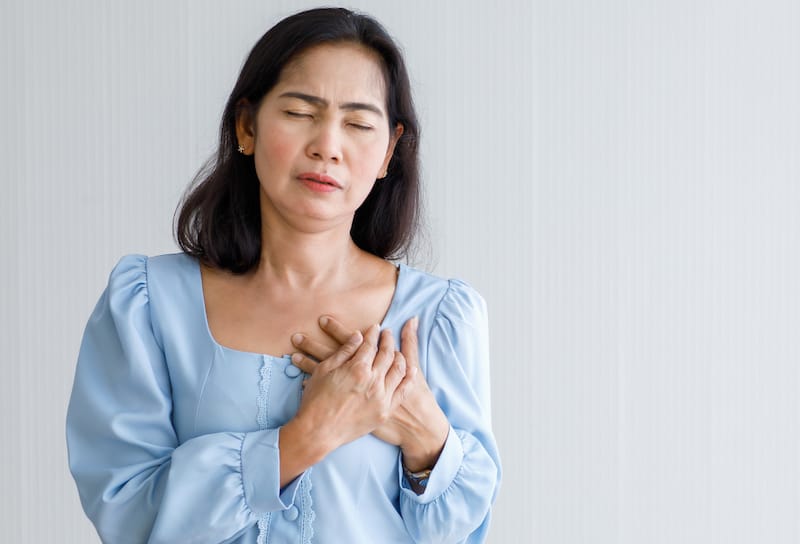Different hysterectomies can result in going through the menopause or perimenopausal phase. Since there’s a fluctuation of hormones such as estrogen and progesterone, having painful nipples is expected. It might be non-cyclic or cyclic breast pain. You can choose to implement various remedies to relieve tender breasts. This includes wearing the right bra, using a hot or cold compress, taking an OTC pain reliever, alternate medications, lifestyle changes, and hormone replacement therapy. Remember, you don’t need to be a soldier and bear the pain alone. Seek help whenever you feel like it.
A hysterectomy can take a toll on your body and is emotionally draining for many women. Getting this surgery could be your decision based on various factors, but one needs to prepare themselves for what follows after this surgery.
Not every hysterectomy surgery might result in painful nipples.
With several side effects having sore nipples or tender breasts is one side effect you need to be prepared for.
Let’s understand why you’re experiencing this side effect and how to stop the nipples from hurting.
Different types of hysterectomies
You’re aware that a hysterectomy surgery is done to remove the uterus. The reasons behind getting this surgery could be many depending on the individual.
There are different kinds of these surgeries, and it’s essential to know which could trigger this symptom of painful nipples.
- A total hysterectomy surgery involves the complete removal of the uterus and cervix.
- A supracervical hysterectomy surgery involves the removal of the uterus but not the cervix. It’s also known as a subtotal or partial hysterectomy.
- A radical hysterectomy removes the uterus, cervix, and surrounding support tissue. This is mostly recommended for people with cancer.
In general, it’s common for people to experience pain, bleeding, vaginal discharge, changes in sexual activity, and constipation after a hysterectomy. But specific side effects depend on the kind of hysterectomy surgery you got done.
Painful nipples after hysterectomy
Having painful nipples is a specific side effect but is not something that all people might experience.
Two main types of breast pain are experienced in women.
Usually, sore breasts or painful nipples are common symptoms women might feel in days leading up to their periods and are commonly known as cyclic breast pain.
But this particular symptom is also felt by women when they’re going through their premenopausal phase, where their hormones are going up and down.
There are two kinds of hysterectomy surgeries where women might experience menopausal symptoms where having tender breasts or painful nipples are to be expected:
- A hysterectomy with oophorectomy means they no longer have ovaries. The ovaries are responsible for producing the hormone estrogen. Without these organs, a person who has not undergone menopause already will experience symptoms of menopause, such as painful nipples.
- A hysterectomy without oophorectomy that doesn’t involve ovary removal might still affect the ovaries. In addition, research studies have found that this kind of surgery too may speed up the onset of menopause.
Hysterectomies performed may affect the blood supply to the ovaries, which is one theory of why this could happen.
When they leave one or both ovaries, monthly hormone fluctuations may still occur after the hysterectomy.
You won’t have menstrual bleeding because you have no uterus, but you still have ovaries responsible for producing hormones.
This will cause premenstrual symptoms such as tender, swollen, and painful breasts, known as cyclical mastalgia or cyclic breast pain.
If a woman gets her ovaries removed, she might experience painful nipples if she takes hormone replacement therapy (HRT) to reduce menopause symptoms for premenopausal women.
Breast pain that isn’t linked to the menstrual cycle is known as non-cyclical breast pain.
Remedies for tender breasts

When you feel your nipples are hurting after a hysterectomy, it’s not just limited to the nipples, but pain may also be felt in the whole breast and surrounding area.
You might feel your breasts have become tender, and the intensity of this pain might vary.
For many women, this pain resolves on its own a few days after the surgery, so they wouldn’t require any treatment. But for others, the journey after surgery can be painful and requires careful attention.
Here are a few remedies to help to relieve pain in your tender breasts:
1. Wear the right bra
The first thing to notice would be to change the current bras you own.

Depending on the pain intensity, you might want to change into more comfortable bras like complete cotton bras.
Check to see if you wear the correct size of bra. Lastly, you can wear bras without underwires and just made up of soft cloth-like material like a bralette.
2. Hot or cold compress
Just like you would use a hot bottle during your periods on your lower abdomen or lower back to relieve pain, so should you now but on your breasts.
After a hysterectomy, pain and swelling can be felt in the breasts, which can be helped with a hot or cold compress.
Remember to never apply it directly and always use it wrapped in a cloth.
3. Over-the-counter pain reliever
Sometimes the pain can be unbearable, and it’s on those days when you should think about taking an over-the-counter pain reliever.
Medications such as acetaminophen or ibuprofen are good options. If you take them almost daily, immediately go to your doctor.
Daily dosage of painkillers without a prescription can result in a damaged liver.
4. Alternative medicine

Vitamins and dietary supplements can also help reduce some women’s breast pain symptoms and severity.
You can think about including evening primrose oil, which can change the balance of fatty acids in your cells, reducing pain.
Another option would be to include vitamin E supplements. Don’t take all the supplements at the same time.
If you don’t feel a change, stop taking any supplements.
5. Lifestyle changes

What you eat and how you live your life can also aggravate breast pain or result in tender or painful nipples. Diet plays a big role when you’ve had surgery.
Trying to live a completely healthy life can be overwhelming suddenly, but if you don’t choose healthy options, the side effects will only increase in intensity.
Caffeine consumption and nicotine might worsen your symptoms. So, think about eliminating coffee, tea, and smoking from your life entirely if you wish to get better soon.
Other things to focus on would include:
- Having a well-balanced diet
- Getting plenty of sleep
- Drinking enough water
- Exercising regularly
6. Hormone replacement therapy (HRT)
Some women start receiving hormone therapy, which might cause breast tenderness or swelling. This happens when the breast tissue responds to an increase in estrogen level.
You should discuss your options with your doctor, and they will either lower the medication dosage or switch to another type of HRT.
When to see the doctor
Before we discover a severe health condition, our body tries to warn us in various ways so we can catch onto it early and start treating it.
These signs mostly begin at a small level, and most often, if you’re not careful, the conditions are diagnosed when they have become severe.
So, feeling tenderness in breasts and nipple pain are understandable side effects of hysterectomy surgery, but it could also be something more than that.
If the pain lasts longer than a few months or gets worse steadily, even after you’ve talked to your doctor or tried a few remedies, you need an examination done.
It’s essential to take notice of small changes in your body and get them checked by a healthcare professional as early as possible.
Here are a few symptoms of breast cancer to watch out for:
- New lumps
- Nipple discharge
- Itchiness, redness, or a rash
- Nipple changes
- Skin looked like an orange peel
See your doctor immediately when you notice new developments in your breasts, for it could also be a sign of breast cancer.
FAQs
Do you age faster after a hysterectomy?
Having a hysterectomy in itself is a significant change for women, and there are physical side effects and a huge emotional impact on the individual.
A hysterectomy can speed up menopause in women, so whatever symptoms one feels when one goes into menopause can be felt after a hysterectomy.
This surgery doesn’t in itself make you age, but if you’re at the age before you haven’t hit menopause, then there will be some changes that can make you feel as if you’ve aged.
What hormones cause sore nipples?
Changing hormone levels after a hysterectomy are caused as many people feel the signs and symptoms of menopause.
Getting sore nipples or tender breasts is one part of it.
As you go through menopause or perimenopause, the estrogen and progesterone levels rise and fall in unpredictable patterns before starting to taper off.
What are the symptoms of menopause after a hysterectomy?
It turns out that having tender breasts is just one sign of going through the hysterectomy symptoms of menopause. There are other signs as well that you need to look out for:
– Hot flushes
– Depression
– Vaginal dryness
– Sleep problems
– Fatigue
– Night sweats
– Affected sexual activity
Since it’s life-changing surgery and different hysterectomy removes different parts, you need to be mentally prepared to handle the side effects that follow after it.
To summarise
Having a hysterectomy surgery isn’t something easy to go through. In addition, there are different kinds of hysterectomies, resulting in additional side effects for you to handle. For example, you might experience non-cyclic or cyclic breast pain.
When a woman hasn’t gone through the menopause stage, they are prone to go through similar signs after the surgery.
In such cases, having tender breasts and sore nipples is something one might experience because of hormone fluctuation. Therefore, you need to be mentally prepared before going into this kind of surgery.
You might experience many changes, so having a solid emotional support system is needed. You don’t need to bear all the pain alone, so getting medical support is nothing to feel wrong about.
References
- https://www.healthline.com/health/hysterectomy-grieve-for-womanhood
- https://www.medicalnewstoday.com/articles/bleeding-after-hysterectomy


